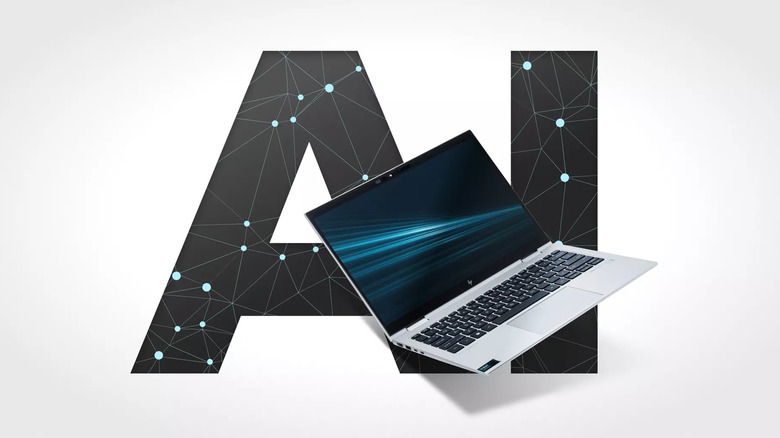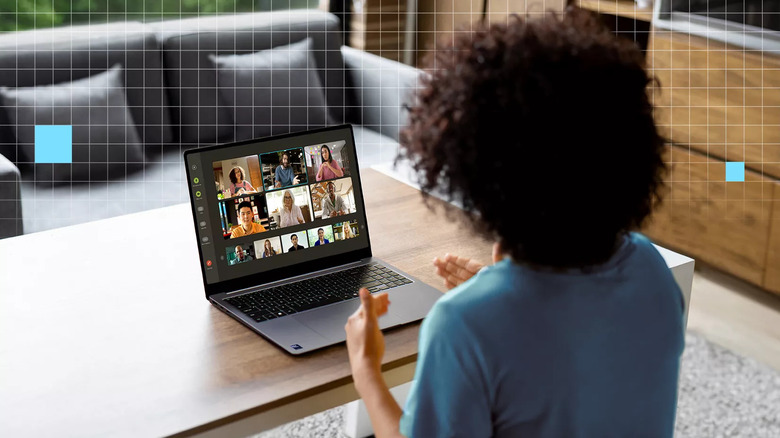
If you’ve been shopping for a PC recently, there’s a good chance you’ve noticed the arrival of a new kind of computer called an AI PC. The term doesn’t exactly roll off the tongue, but if it’s got you wondering whether your current computer is due for an upgrade, it’s working as intended. The truth is, although there is such a thing as an AI PC, the definition is a bit contested. Among the companies with an interest in selling computers under that label are Microsoft, HP, Intel, AMD, and Qualcomm, all of which have slightly different priorities. The result is a not insubstantial amount of confusion for both consumers and even those in the tech press.
What constitutes an AI PC depends on which of these companies you ask, and by now, many definitions have been put forth. Microsoft has one idea of what an AI PC should be, which we’ll get into, but there are other definitions that probably comport more with the expectations of users who actually want to run AI programs locally. The bottom line is that the vast majority of users probably wouldn’t notice the difference between an AI PC and a normal PC if both were put in front of them.
Ultimately, AI PCs might currently be a hammer in search of a nail, but as AI becomes incorporated into more workflows and as more tools are built to take advantage of new hardware, AI PCs could rapidly become much more capable than they currently are. So, let’s break down what constitutes an AI PC, why people may disagree over the definition of the term, and what you need to know when shopping for your next computer.
>>>Acer Aspire One Z1401 Z1402 C6UV C6YW Replacement Battery
AI PCs have neural processors for AI tasks

At the most simple level, an AI PC is any PC capable of running AI tasks locally. In many cases, that means they include a neural processing unit (NPU), which is a specialized processor or part of a processor built to handle AI tasks. Its performance is measured in trillions of operations per second or TOPS, and it can do things like run local AI models with more efficiency than a GPU-bound setup. But the thing is, there’s no strict definition of an AI PC beyond the vague concept of being able to run AI tasks. And you don’t need an NPU for that. GPUs are still the preferred hardware component for generative tasks, as they provide much more raw power, and the newest graphics cards from NVIDIA are built to handle AI tasks.
Microsoft and Intel have put forward a definition of AI PCs that includes three requirements: such a computer must have an NPU, CPU, and GPU, it must come with Microsoft Copilot, and it must have a dedicated Copilot key on the keyboard. This is a bit silly on its face since many AI PCs don’t even run Copilot locally, and the inclusion of a Copilot key has no relation to the computer’s actual capabilities. And besides, there are AI programs other than Copilot. Why shouldn’t a computer that runs local AI chatbots like DeepSeek and Meta Llama or an image pipeline like Stable Diffusion count as an AI PC?
Microsoft also maintains branding for a category of computers it calls Copilot+ PCs, which appear to be following the same qualifications. So, it might be most fair to conclude that AI PCs have a broad definition, requiring AI-capable hardware like a GPU or NPU, but not necessarily both.
>>>Acer Aspire 2930G 4740G 5738G 4930 5735 Replacement Battery
Most people shouldn’t worry about getting an AI PC

The question you may be asking is whether you need an AI PC in order to future-proof your digital life, and the answer is, almost certainly not. There is little to no benefit for the vast majority of people, especially those who already have a PC with relatively up to date hardware. If you were to buy a PC with an NPU, you’d get a few features like sound suppression during voice calls, limited image generation, and camera features. Nothing most people would say no to having, but also nothing even close to justifying an upgrade from your current computer. If you were to upgrade in search of better AI performance, you’d be better off making sure your new machine has a decent graphics card than even considering whether it has an NPU.
As mentioned above, the vast majority of AI tasks require a GPU. If you want to run image generation tools or large language models locally, and especially if you want to train your own models, you’ll need one of the latest and most powerful graphics cards you can find. New GPUs like the NVIDIA GeForce RTX 5070, 5080, or 5090 are built with these uses in mind, and on a larger scale, NVIDIA is a major vendor of enterprise-grade GPUs that run in data centers. Most people who use AI products are using those cards remotely rather than relying on their own system. Again, Microsoft Copilot does not run locally, even on PCs that fit the company’s definition of an AI PC.
Where does this leave the AI PC? It’s tricky to say. As AI continues to mature, we can see these computers develop into a thriving new ecosystem. Until that happens, though, they shouldn’t affect your choice of computer.